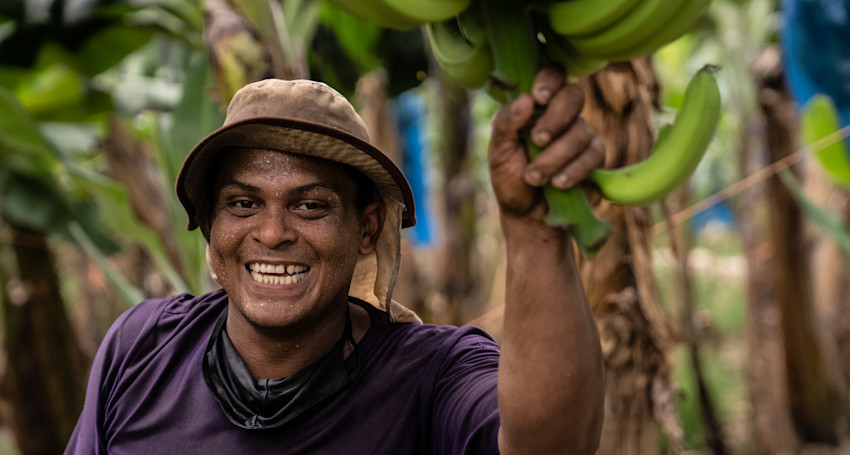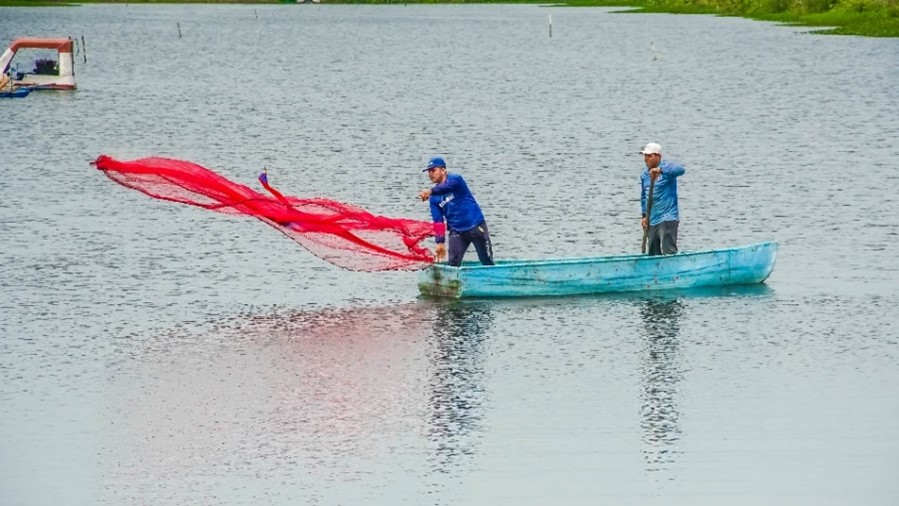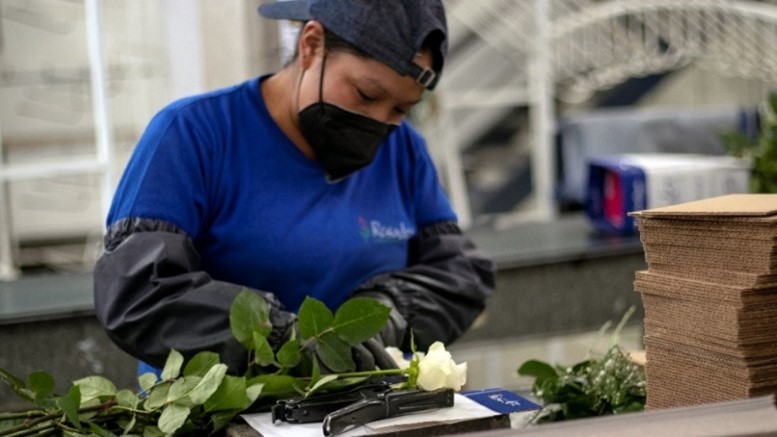
The Aproveco Group, a banana production company located in Costa Rica, works with eco.business Fund to implement and improve their sustainable farming practices.
Borrower Spotlight: Sustainable Companies Supported by eco.business Fund
January 11, 2023
In 2017, Calvert Impact began working with the eco.business Fund and its fund advisor, Finance in Motion. In 2020, we increased our commitment to the eco.business Fund and partnered with the fund on financing for five financial institutions supporting biodiversity conservation across Panama, Honduras, and Costa Rica. Through this innovative transaction, we increased investment capacity for the eco.business Fund, enabling the origination of more green investments.
Introduction to the eco.business Fund
The eco.business Fund aims to promote business and consumption practices that contribute to biodiversity conservation, the sustainable use of natural resources, and climate change mitigation and adaptation in Latin America, the Caribbean, and sub-Saharan Africa. Their work concentrates on the four sectors: agriculture and agri-processing, fishery and aquaculture, forestry, and tourism. The fund supports their partners with financial and technical assistance through their Development Facility, which allows companies to access credit to adopt sustainable business practices.
Since inception in 2014, the fund has contributed to the sustainable management of over 2 million acres, as well as disbursed $2.6 billion for sustainable production practices, with 17% of their portfolio dedicated to sustainable aquaculture. They have also launched 107 technical assistance projects across 25 countries. Learn more about the eco.business Fund’s impact through their 2021 impact report.
Below are three profiles of sectors supported by the eco.business Fund and the positive impact the fund has on the environment, the companies, and the local employees.
Aquaculture to Promote Sustainable Shrimp Farming in Ecuador

The eco.business Development Facility works with organizations including Emcamex S.A. to help the company implement sustainable farming practices.
In 2020, the eco.business Fund identified an opportunity to incorporate sustainable aquaculture practices in the Latin American shrimp market. Shrimp farming in the Caribbean and Latin America accounts for almost 20% of global shrimp production and offers an outsized opportunity to shift farming practices to be more sustainable. To validate the economic and environmental impact of sustainable farming in Ecuador, the eco.business Development Facility created a pilot program, selecting two shrimp producers, Aquashrimp S.A. and Emcamex S.A., and helped them to improve their compliance with the Aquaculture Stewardship Council (ASC) sustainability standards – the world’s leading certification standard for farmed seafood. The ASC label only appears on food from farms that have been independently assessed and certified as being environmentally and socially responsible.
The pilot program helped both shrimp farms implement more sustainable farming practices, which strengthened their relationships with eco-conscious investors. Both companies tested eco-efficient equipment including automatic feeders and ventilators, which improved the shrimp survival rate by 24%, improved the production rate by 19%, and decreased harvest time by 12%. When financial stakeholders invest in producers who implement social and environmental practices, it strengthens commercial relationships and promotes sustainability in the financial sector.
Learn more in the video.
Floriculture to Cultivate Sustainable Flowers in Ecuador

The eco.business Fund partners with organizations like Banco del Pacifico to support companies such as Rosadex, a family-owned floral producer in Kyambi, Ecuador.
The eco.buiness Fund works with floriculture organizations such as Rosadex through their partnership with Banco del Pacifico. Rosadex is a family-owned floral producer that began in 1994 in Kyambi, Ecuador. The company exports their products to 27 countries while implementing positive environmental and social practices throughout their production chain. Rosadex employs sustainable practices starting even before the initial planting of the seeds through the exportation of their flowers. Rosadex’s operations include recycling, composting, sustainable fertigation (a fertilization process using irrigation systems), and research through their microbiology labs. Their research began 10 years ago to study soil’s natural fungi and bacteria used for pest and disease control. They have since found 30 varieties of fungi and bacteria, which are reproduced and released directly onto the plants, reducing the agrochemicals used and strengthening the plants’ immune systems. Rosadex also measures and uses the exact amount of water needed for optimal production, improving water and soil conservation. In addition, the organization focuses on workforce development and employs approximately 300 workers, 60% women, from local communities. Their priority is to educate their workforce so that all employees have the opportunity to achieve their professional goals within the company.
Learn more in the video.
Agribusinesses to Finance Sustainable Banana Production in Costa Rica
Another focus area for the eco.business Fund is agriculture and agri-processing. The fund works with partners such as Banco Promerica to support organizations like Aproveco Group, a Costa Rican banana production company founded in 1996. The company began as a small 598-acre farm with 160 employees and has since grown to 8,154 acres across 13 different farms, employing almost 2,500 people. Aproveco is responsible for about 10% of the total number of bananas exported from Costa Rica. One of the company’s main objectives is to implement sustainable environmental and social practices and has successfully improved their operations with the help of the Rainforest Alliance. Instead of using three rounds of pesticides, Aproveco uses one round and substitutes organic cinnamon, beetroot, garlic, celery, and chili-based products for the other two rounds. Aproveco has come a long way in implementing sustainable farming practices and even aims to become carbon neutral by 2023.
Learn more in the video.
Learn more about our portfolio partners on our website.




